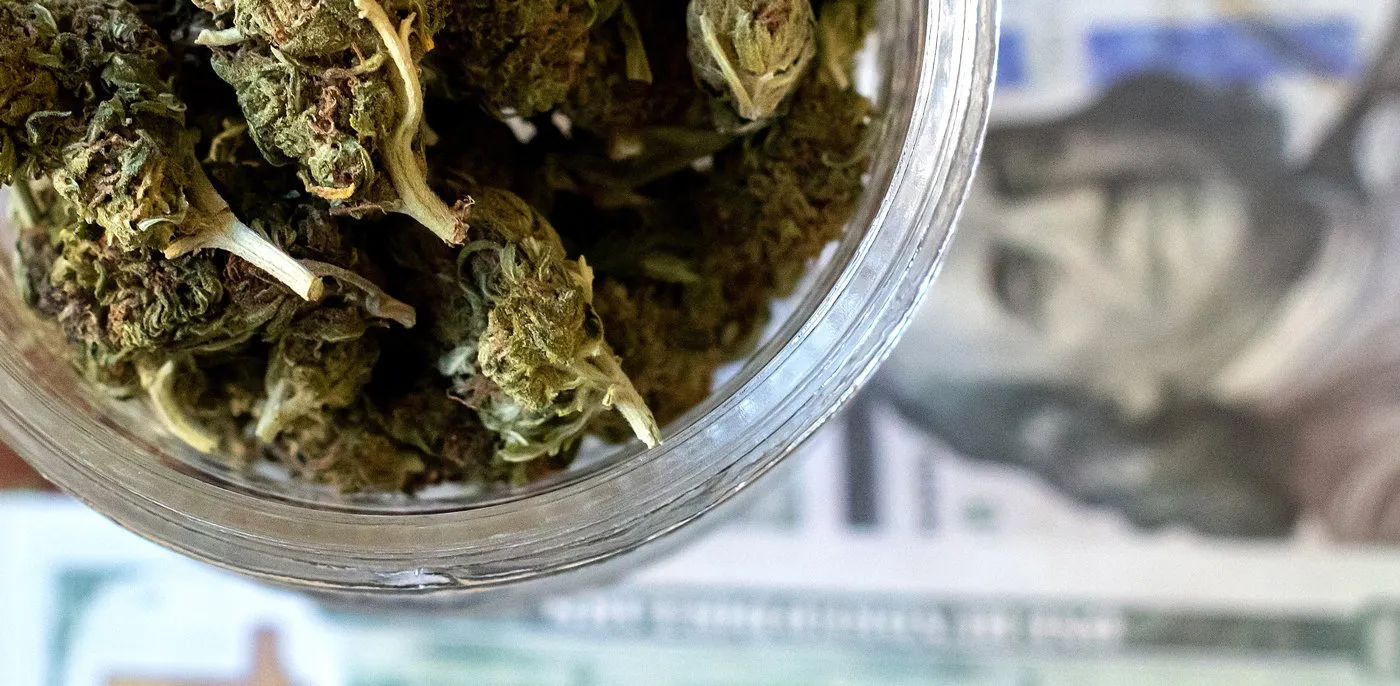Informed cannabis-dependent business owners should know the potential tax pitfalls that can lead to IRS and state audits. This guide is intended to provide them with facts.
INTRODUCTION: IS CANNABIS A LEGITIMATE INDUSTRY?
Despite recent legalization in 19 states, Washington D.C. and Guam, cannabis remains a lucrative and highly scrutinized industry. Regardless of what capacity they operate in, prevalent studies have shown that cannabis businesses are more frequently audited by the IRS than any other industry.
In addition, due to strict regulatory laws and rigid tax codes, the cannabis industry is also required to pay a higher portion of revenue in taxes – sometimes up to 80%.
As a result, it is imperative that those who wish to operate cannabis-dependent businesses are educated about potential tax pitfalls that can lead to audits and how to address them.
WHY IS CANNABIS SO HEAVILY REGULATED?
Although the exact reason remains unknown, the IRS doesn’t believe that the cannabis business is a legitimate industry.
This perspective stems from the fact that although cannabis has been legalized in numerous states, the federal government still classifies it as a Schedule I banned substance, as it has a high likelihood of abuse and no currently accepted medical usage. See “Federal Drug Administration and Cannabis: Research and Drug Approval Process” (October 1, 2020).
As far as the federal government is concerned, the sale of cannabis continues to be illegal. This means that the production, distribution, and possession of cannabis also remains illegal, except in the narrow context of federally approved research studies.
However, business owners that generate income from cannabis are still required to pay taxes, even though it is treated as an “illegal source.” James v. United States, 366 U.S. 213, 218 (1961).
More recently, federal courts have consistently upheld that state compliant cannabis dispensaries have taxable income. Olive v. Commissioner, 792 F.3d 1146 (9th Cir. 2015); Feinberg v. Commissioner, 916 F.3d 1330 (10th Cir. 2019); Beck v. Commissioner, T.C. Memo. 2015-149.
Because the federal government still considers cannabis to be an illegal substance, the tax laws and regulations surrounding income derived from cannabis sales differ vastly from those that concern legal businesses.
The reason why cannabis is such a highly regulated industry turns on Internal Revenue Code (IRC) § 280 (E) (“§ 280 (E)”), which denies deductions and credits for amounts paid or incurred while in the business of trafficking controlled substances in violation of federal or state law.
Section 280 (E) was developed in the 1980s to prevent drug dealers from making deductions related to trafficking controlled substances.
Consistent with cannabis classification as a Schedule I controlled substance, § 280 (E) forbids business owners from taking tax deductions and claiming tax credits attributable to cannabis businesses – deductions that their mainstream counterparts are able to take advantage of. See Congressional Research Service’s Publication, “the Application of Internal Revenue Code Section 280E to Marijuana Businesses: Selected Legal Issues,” Report No. R46709 (March 10, 2021).
THE COST OF GOODS FACTOR
Cannabis business owners may offset their gross income factoring in the cost of goods sold. Cost of goods sold (“COGS”) refers to “expenditures necessary to acquire, construct or extract a physical product which is to be sold.”
COGS include:
- The cost of raw materials and supplies consumed in connection with the produce,
- expenditures for direct labor, and
- indirect production costs necessary to produce the item including an appropriate portion of management expense.
To simply further, this deduction includes expenses such as labor, materials and supplies, and facility utilities. It does NOT include the cost of selling goods, such as budtender wages, expenses for retail space, or advertising costs.
Section 280 (E) typically results in state-legal-cannabis businesses having to pay astronomical federal tax rates – as much as 80% to 100% in many cases.
Fill out the form to get your complimentary PDF guide
REASON FOR OPTIMISM
Although cannabis businesses have been unsuccessful in challenging the IRS’ stance on application of § 280 (E) and have not succeeded in their attempts to challenge § 280 (E) on constitutional grounds, there is reason for optimism.
One recent and closely watched case involved Harborside, a large California operator of cannabis dispensaries. They sought to have their corporate income tax liabilities from July 2007 through July 2012 (amounting to about $11 million), dismissed. In doing so, they would also prove that Section 280 (E) was unconstitutional, as the taxes are based on gross instead of net income.
“The multimillion-dollar tax controversy,” wrote Judge Daniel Bress, “…reflects the latest attempt by a medical marijuana retailer to ameliorate the significant tax consequences Congress has prescribed for businesses that Congress regards as trafficking in controlled substances.
Under federal law, those prohibited substances include marijuana, even though some states have more recently legalized its sale. This disharmony between federal and state law produces the multimillion-dollar tax controversy before us.”
Harborside lost their case, and Section 280 (E) still bars cannabis companies from taking standard business deductions on their federal taxes. “Section 280 (E) continues to negatively impact the growth of the legal cannabis industry, the jobs that it has created and state/local tax revenue that have come as a result,” the company said in a statement.
“Harborside therefore remains committed to pursuing the elimination of this impediment and will continue its efforts through the courts and Congress.”
It may be some time yet before a cannabis tax bill passes, and Section 280 (E) is overturned. Lobbyists in Washington D.C., and certain senators and staffers have been working on a bill that would remove cannabis from the list of controlled substances, eliminate all criminal penalties for trafficking in the drug and establish a national tax and a regulatory framework for cannabis-related businesses.
However, until that bill or a similar one passes through the Senate, cannabis business owners can expect to be audited often and pay sky-high tax rates.
